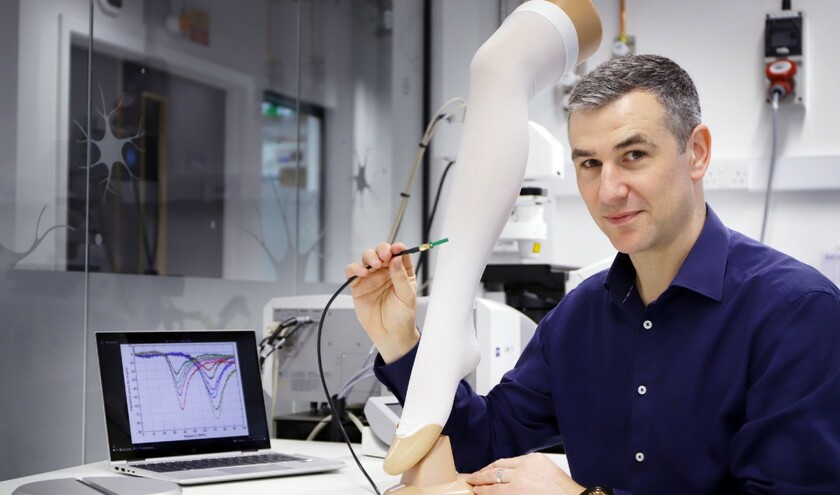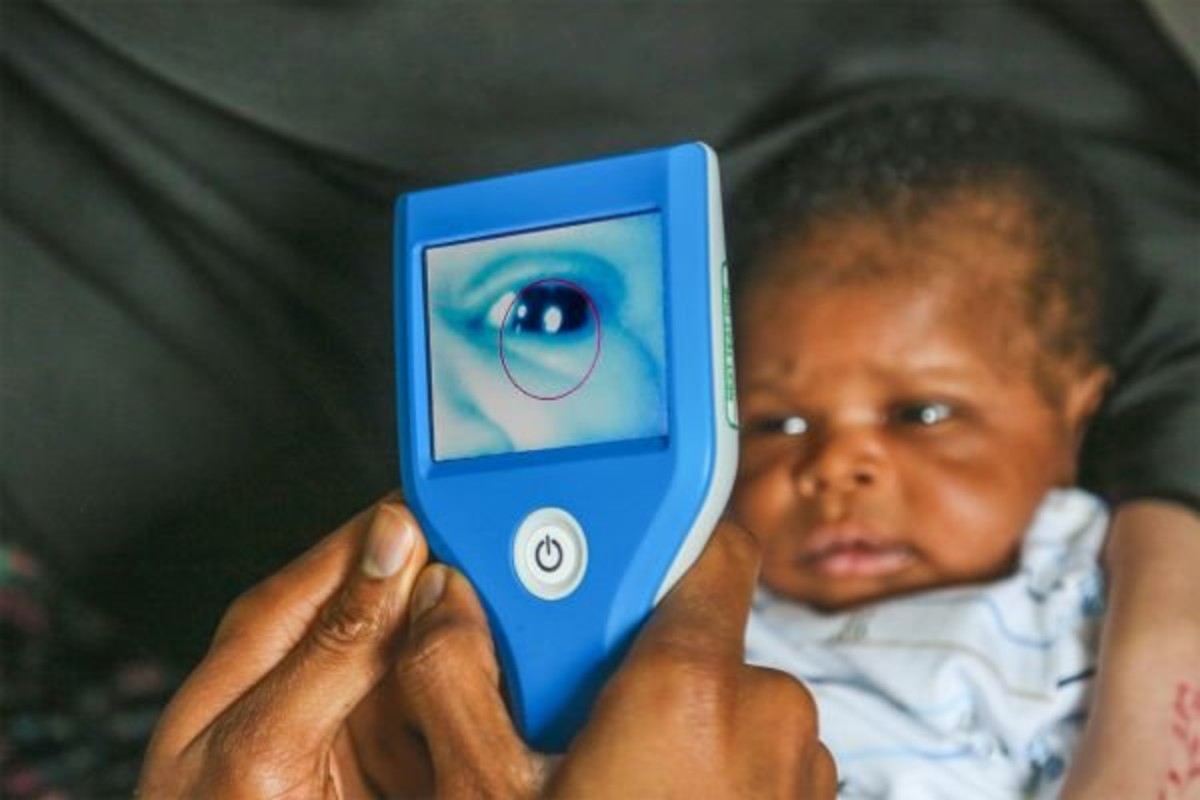Their polymer-based sensor fits underneath bandages and compression stockings like a sticking plaster, and a handheld reader measures whether the bandage is exerting the correct pressure on the body, to prevent blood clots such as deep vein thrombosis (DVT) and reduce pain and swelling for people with lymphedema.
The sensor, invented by Dr Philip Hands of the University of Edinburgh alongside Professor Marc Desmulliez and Drs Vasileios Mitrakos and Lisa Macintyre of Heriot-Watt University.
Dr Hands, of Edinburgh's School of Engineering, said: ‘Currently most people who have an operation wake up to find themselves wearing compression stockings, and often they don't fit well. Our device is unobtrusive, and with a wave of the handheld antennae near the body you can measure the pressure and adjust the stocking or bandage. We think this simple, cheap device has huge potential.
‘Existing sensors are bulky and have protruding wires that can damage the skin. At the Scottish Microelectronics Centre (SMC) in Edinburgh we have developed a method of manufacture that outperforms other devices due to our sensor's low cost, high precision and ultra flexibility.'
Professor Desmulliez, associate principal (impact) at Heriot-Watt University, added: ‘Due to its polymer composition, the sensor offers versatility as one or more can be positioned anywhere on the body. It could also have broader applications in all sorts of wearable devices, roll up smartphones, and high-performance sports equipment, such as elite swimsuits, where fit is extremely important.'
The team has received £75,000 of Scottish Enterprise High Growth Spinout funding, as they move towards forming a company, supported by Edinburgh Innovations, the University of Edinburgh's commercialisation service.



